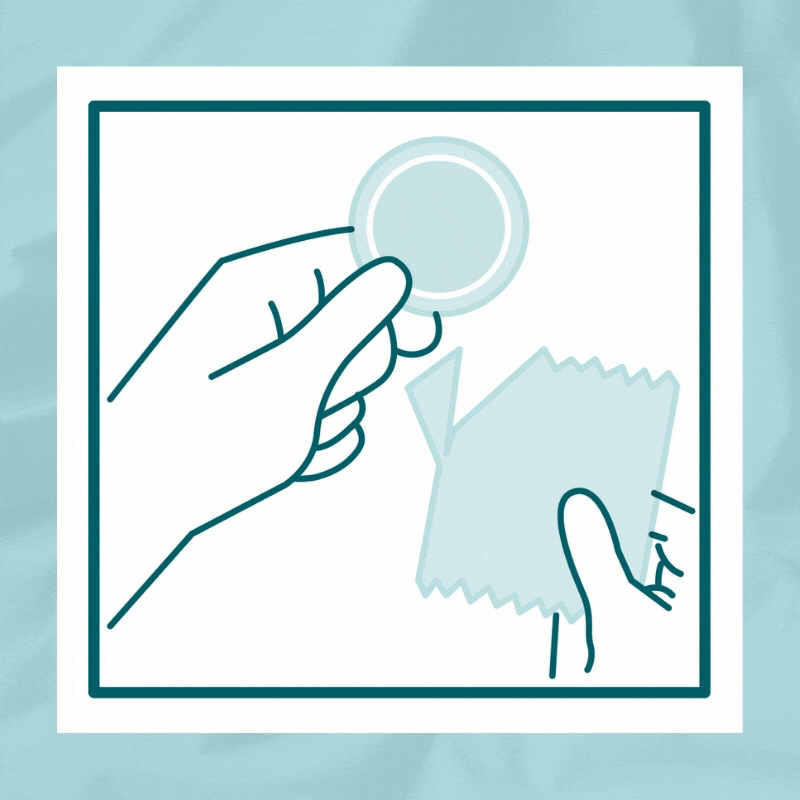The importance of men’s involvement when it comes to pregnancy prevention is widely recognised but not strongly reflected in the contraceptives currently on the market. Despite the range of options for women (including the contraceptive pill, female condoms, diaphragms, vaginal rings, skin implants, injections and Intra Uterine Devices), the choices for men are limited to two. Condoms, with their high failure rates1, and vasectomies, which are invasive, expensive and not always reversible.
While pickings are slim, it certainly doesn’t mean men are well versed in the pros and cons of each product. So, we’re getting a bit more familiar with what’s on offer and whether additional options are on the horizon.
Condoms
Most men would be familiar with condoms — a fine sheath of rubber or plastic that covers the erect penis, acting as a physical barrier to stop fluids passing between people during sexual activity. It’s the main, male-dependent method of contraception, with the added benefit of reducing your risk of getting or spreading sexually transmitted infections (STIs).
Although they have the advantage of being affordable and accessible, the downsides are that they can only be used once, they’re perishable, and their effectiveness relies on perfect use.
Something that studies suggest isn’t so straightforward1.
While condoms are 98% effective against pregnancy with perfect use, around 18% of women will still get pregnant using them, generally because they’re not used correctly2. Issues include breakage, slippage, and leakage as well as putting on the condom after genital contact or removing it early.
Research has also found that only a quarter of Australians used a condom the last time they had vaginal intercourse, and one in six of these condoms were put on after genital contact3. Not only is that bad news for preventing STIs but it’s also possible to fall pregnant with pre-ejaculate (also known as ‘pre-cum’).

Vasectomy
A vasectomy is a surgery that cuts the vas deferens — the tubes that carry sperm from the testicles to the urethra. It’s a safe, effective, and permanent method of pregnancy prevention that’s used by about one in four men over the age of 40. To get a vasectomy you’ll need a referral from your doctor to see a specialist. The procedure will be performed in a hospital or in a doctor’s private rooms and take roughly 15 to 30 minutes, either under general or local anaesthetic.
You’ll need to use another method of contraceptive for a few months after your vasectomy, while the sperm clears out of your ducts. After a vasectomy, you’ll still ejaculate but it won’t contain any sperm. It won’t affect your sex drive, sexual function or testosterone levels in any way. But this contraceptive isn’t entirely risk free — in about one in 500 men, sperm can reappear months or years down the track. The surgery also carries a small risk of infection or significant bleeding.
One of the most important factors to remember is that vasectomies are intended to be permanent, so you should be certain that you don’t want any, or more, children.
There’s a misconception that they can always be reversed should you change your mind, but that’s not always the case.
Hormonal contraception
Despite starting research on long acting, reversible birth control for men in the 1970s, we’re yet to see a product hit the market.
There are several reasons why the pace of male contraception development has been slow in comparison to female. One of them being that physiologically, it’s much harder to achieve effective pregnancy prevention in men. Women produce one egg a month while men produce millions of sperm constantly, and the former is easier to supress than the latter.
But we came close in the last couple of years.
Professor Robert McLachlan AM, Medical Director of Healthy Male and key researcher in this area, said the news was fairly heartbreaking for those working on it.
“Because here’s a product that we know works, we know a lot about its profile, its safety, its efficacy” Professor McLachlan says. “Australia has punched above its weight on this area and we were doing one sixth of the work. We really were at the forefront of it. But it’s since run out of legs.”
However, more than 75% of the men who didn’t drop out of the trial said they would use the injection if it became available and some initiatives are still ongoing — including a trial running in the US using gel patches. Despite the positive results seen previously, we’re unlikely to see anything hitting pharmacy shelves any time soon.
“The road to commercialisation is vast, people do not understand how much it costs to bring a medication to the marketplace,” Professor McLachlan says. “One of these days it will come back but not in my professional lifetime I’m afraid.”
References











